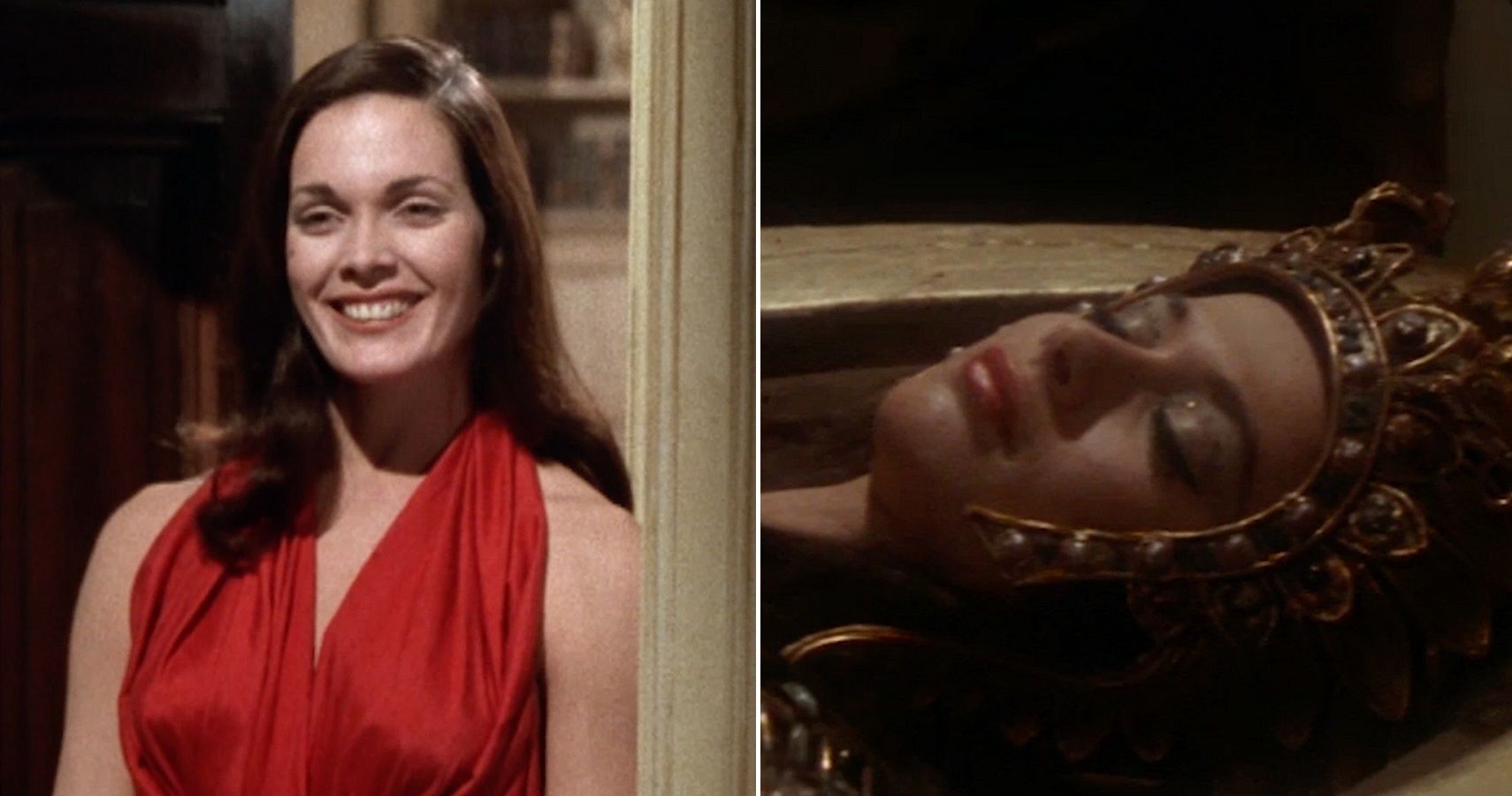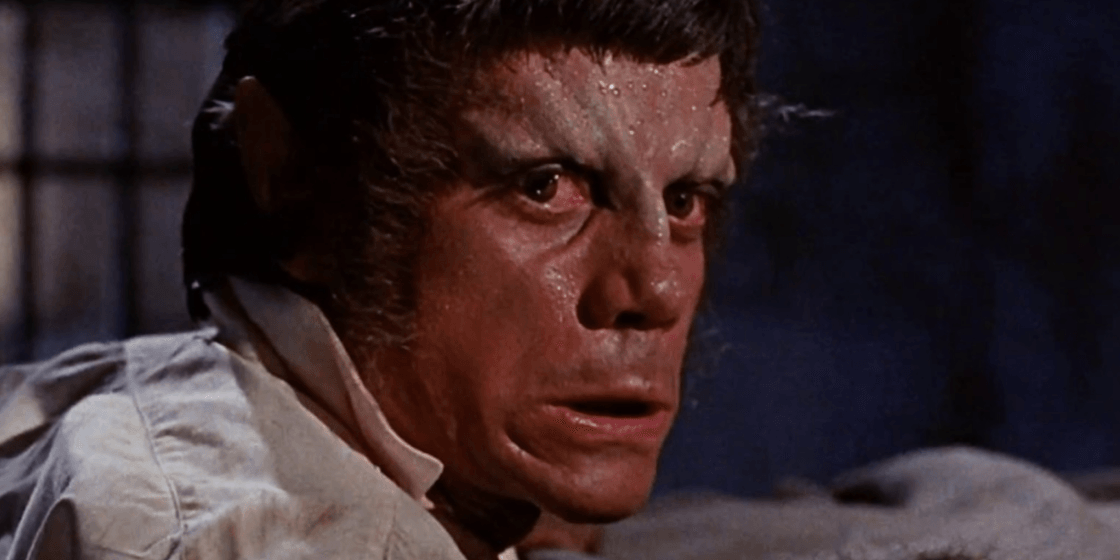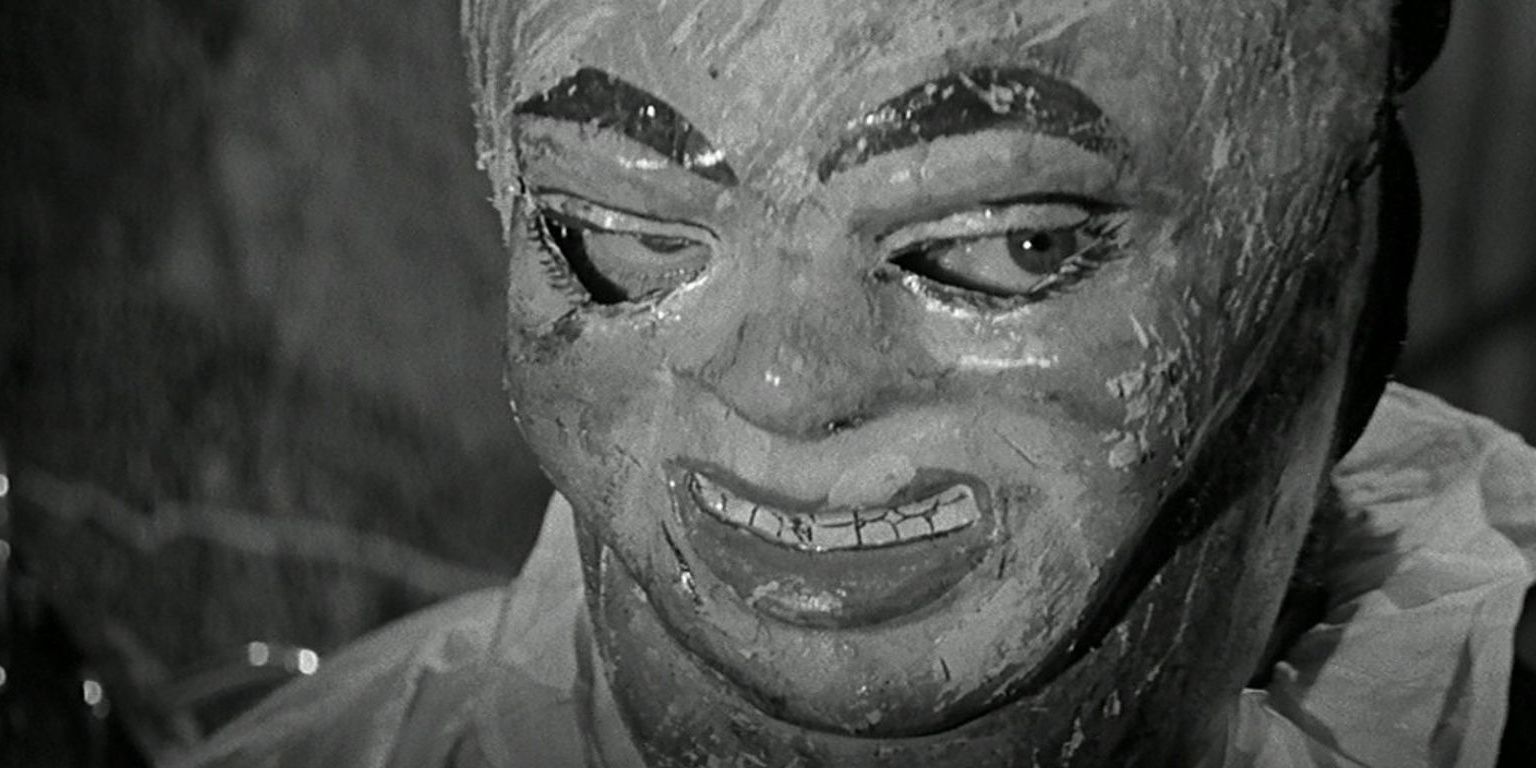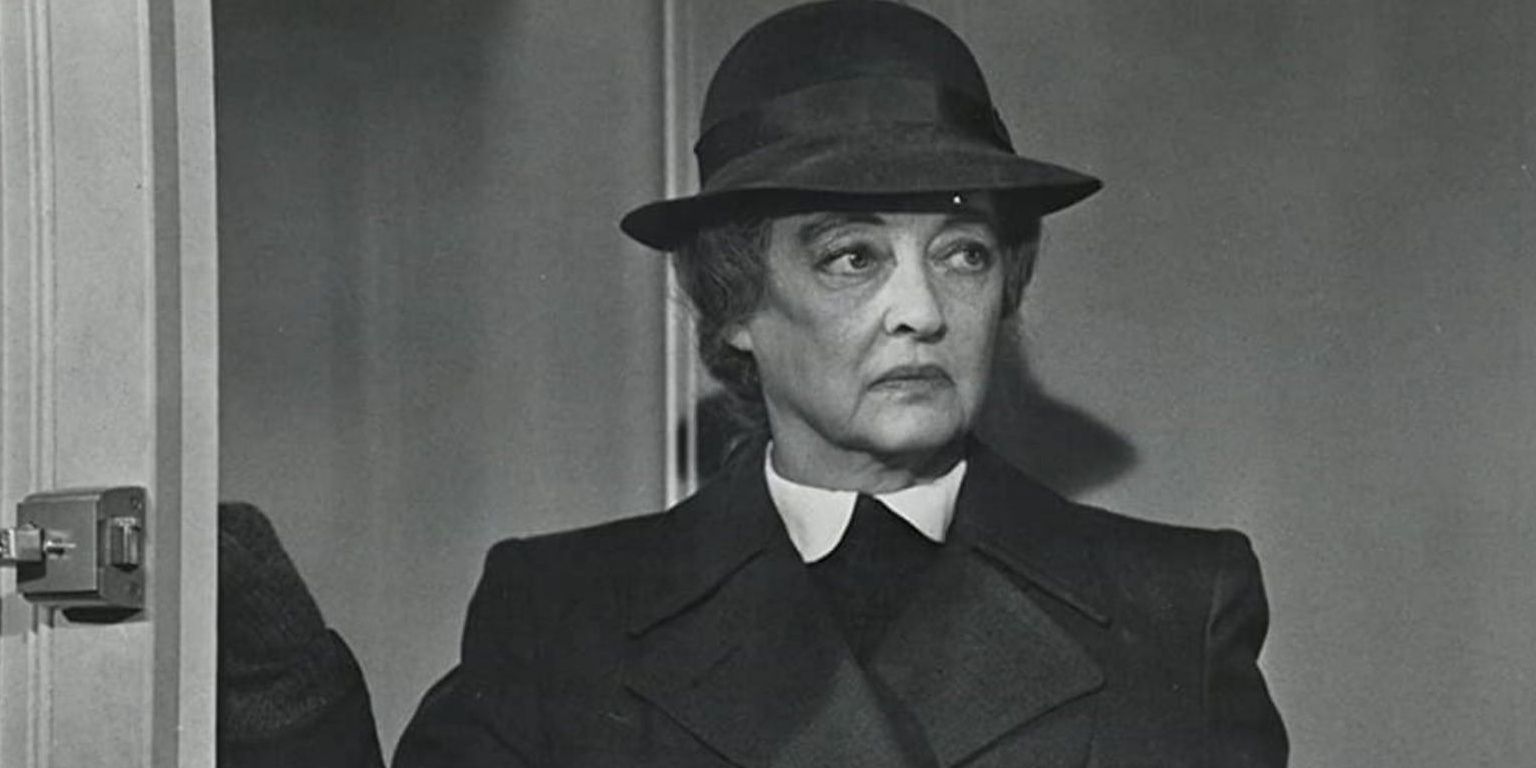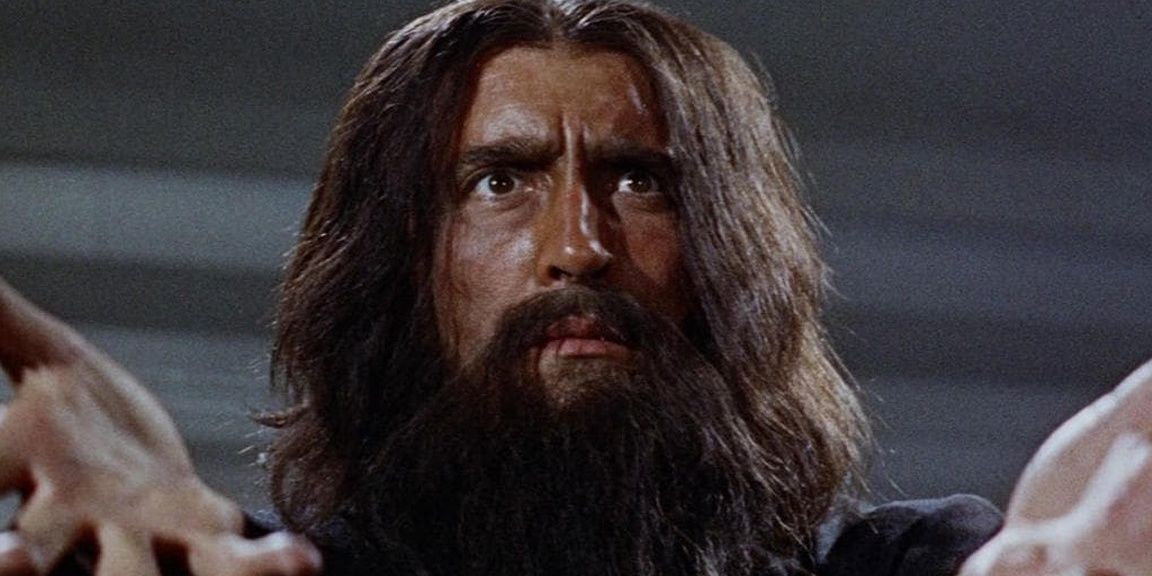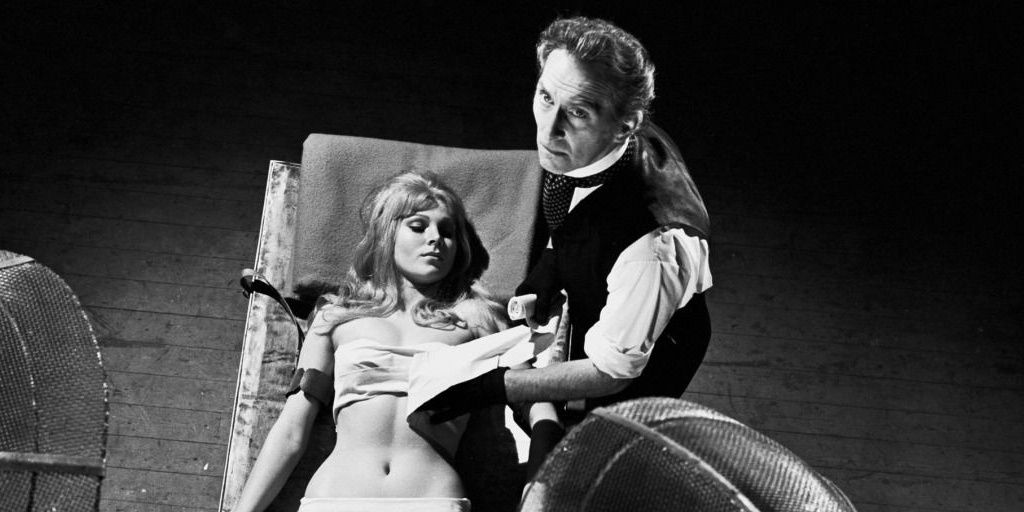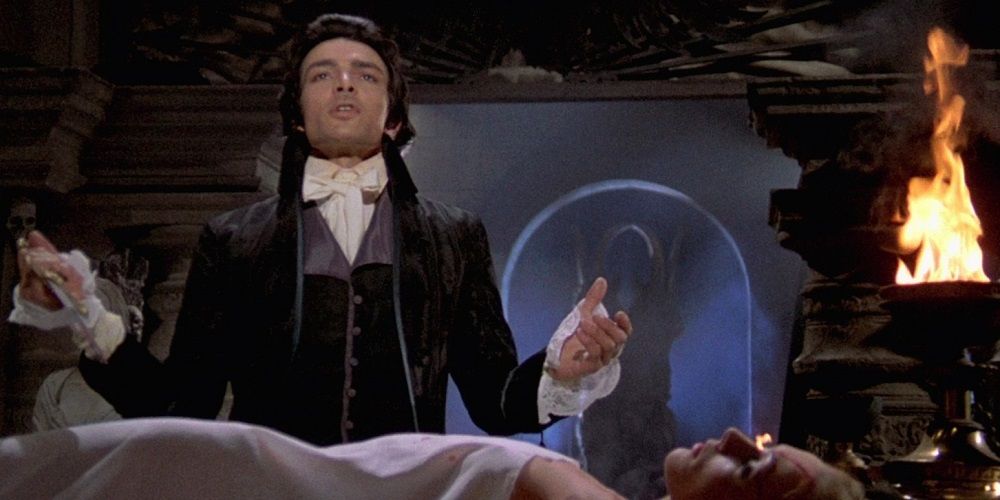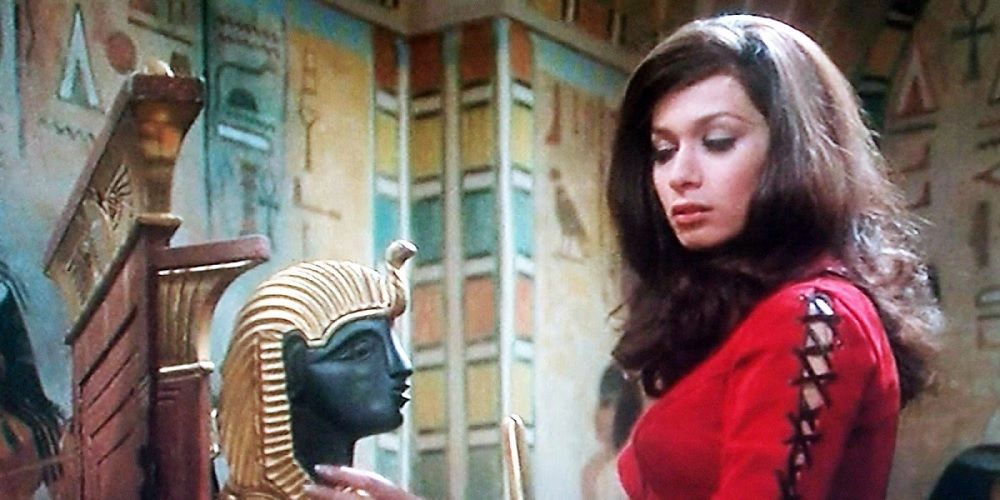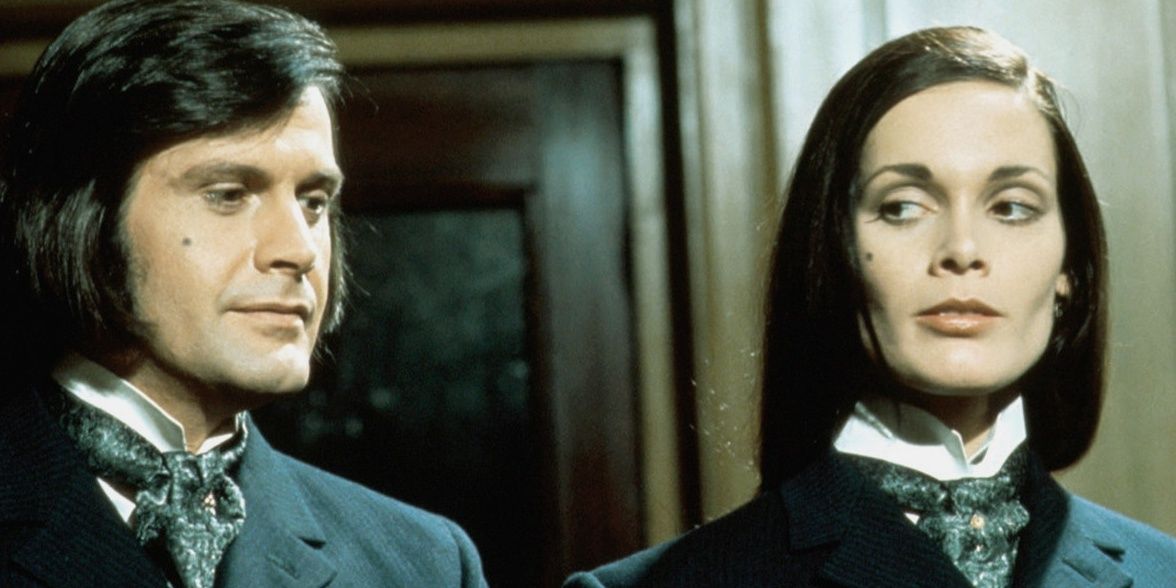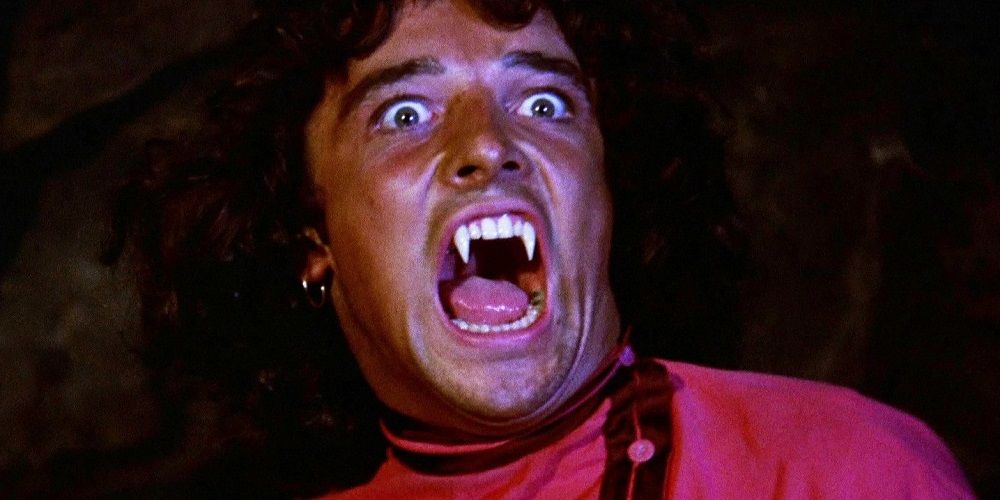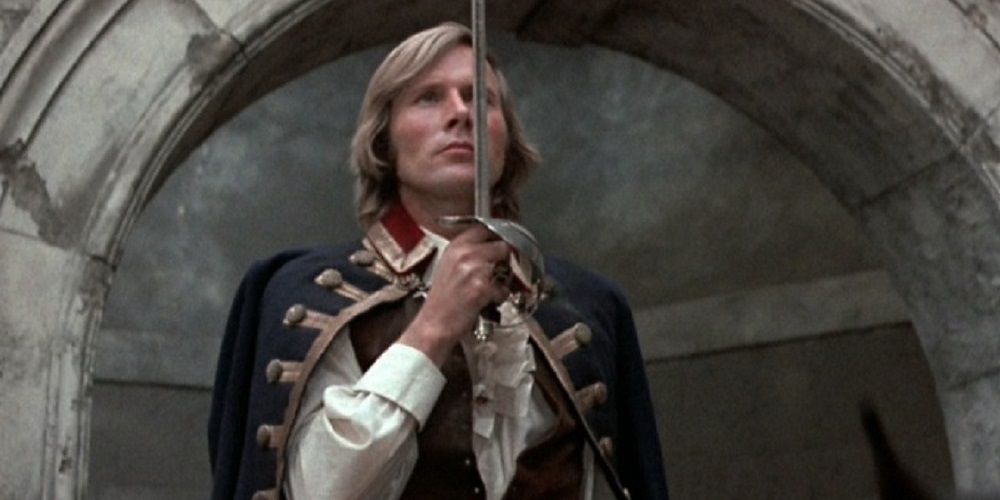In the 1960s, Hammer Film Productions reigned supreme. Breathing new life into the classic Universal monsters of the 1930s with lush color photography and plenty of cherry-colored blood, Hammer was the horror studio from the mid 50s until the 70s. Though it didn't fully cease production until the following decade (and was resurrected again in 2007) nothing beats the gothic chillers of the studio at its height.
With bonafide classics like The Curse of Frankenstein and Horror of Dracula, and instantly iconic creature features like The Reptile (1966) and The Gorgon (1964) getting all the glory, there are some really good Hammer flicks that fall through the cracks. Below are ten of the best to add to your watchlist.
Curse of the Werewolf (1961)
The child of a mute servant girl raped by a lunatic prisoner who dies giving birth, Leon (Oliver Reed) is raised by the kindly Don Alfredo Corledo (Clifford Evans) who immediately realizes that something dark possesses the child. When the adult Leon (Oliver Reed) strikes out on his own, he finds himself unable to resist the feral urges that lurk within him without the tutelage of his adoptive father to guide him.
Directed by Hammer golden boy Terence Fisher, Curse of the Werewolf is often neglected, which is a shame. With an evocative Spanish setting, trans-generational werewolf mythos, and a young Oliver Reed at his most beautiful, this lush supernatural tragedy is one of the studio's most handsome productions.
Paranoiac (1963)
When her parents pass away, Eleanor Ashby (Janette Scott) is all set to collect her inheritance before she notices a man who looks remarkably like her deceased brother, Tony (Alexander Davion) at their funeral. After confiding in her other, very-much-alive sibling, Simon (Oliver Reed), he decides to contest the will due to what he believes is her deteriorating mental state. Has Eleanor really cracked, or could Tony really be back from the grave? That is, if he ever really died at all.
Though most famous for their monster movies, Hammer produced some Hitchcockian thrillers of note. Paranoiac is one of the best of the bunch, beginning as a slow-burn mystery before kicking it into high gear for a ludicrous finale.
The Nanny (1965)
10-year-old Joey (William Dix) returns from a stint in a juvenile psychiatric ward two years after the death of his younger sister. Though he seems cured of whatever ailed him, he still approaches the family's live-in maid (Bette Davis) with trepidation, refusing to eat the food she prepares or take a bath with her nearby. Joey's parents (James Villiers and Wendy Craig) object to his cool behavior, but he may have more reason to fear the Nanny than either of them realize.
Seth Holt's psychological chiller is one of Hammer's more restrained efforts, and it's all the better for it. The famously brassy Bette Davis gives an unglamorous and delicately wrought performance that makes this deliberately-paced picture as tragic as it is frightening.
Rasputin the Mad Monk (1966)
Christopher Lee stars as Grigori Rasputin: the mysterious holy man who ingratiates himself into the Russian aristocracy through a mix of magic and cunning.
Trading historical accuracy for tawdry thrills, Rasputin the Mad Monk coasts on Lee's megawatt charm and scenery-shredding intensity.
Frankenstein Created Woman (1967)
Baron Frankenstein (Peter Cushing) comes up with his most mad idea yet: transferring the soul of a freshly deceased young man into the nubile body of his lover, Christina (Susan Denberg), and using her to hunt and kill the men who did them wrong.
With a wild concept presented without an ounce of irony, Frankenstein Created Woman is one of Hammer's few interesting Frankenstein sequels, mixing everything from vengeance to gender and sexual politics into its wickedly bizarre brew.
Twins of Evil (1971)
Identical twins Frieda (Madeleine Collinson) and Maria (Mary Collinson) come from Venice to live with their uncle (Peter Cushing) after the death of their parents. Nestled in Central Europe, the girls become spellbound by the wicked Count Karnstein ( Damien Thomas) and his imposing castle, which supposedly houses vampires.
Based on the foundational sapphic vampire tale, Carmilla, Twins of Evil tones down the lesbianism of its source material, but keeps its thematic spine about the tension between the body and soul, and the sacred and profane.
Blood from the Mummy's Tomb (1971)
Professor Fuchs (Andrew Keir) and his archaeology team return to England with the remains of an evil Egyptian queen. When Fuchs gifts his daughter (Valerie Leon) the long-deceased queen's ring, she becomes possessed by her wicked soul and leaves a trail of destruction in her wake.
Hammer's mummy movies (or even mummy movies in general) are often underrated, but Blood from the Mummy's Tomb injects new life into the subgenre's dusty tropes with a female antagonist and psychological bent.
Dr. Jekyll and Sister Hyde (1971)
When Dr. Jekyll (Ralph Bates) tests an immortality formula on himself, it has the unexpected side effect of transforming him into a gorgeous woman. His alter ego, Mrs. Hyde (Martine Beswick) is a bloodthirsty killer with a fondness for prostitutes who, ironically enough, live in fear of Jack the Ripper but has no idea that it's a transmogrified woman picking them off.
Sexy and twisted, this darkly comic, gender-bending oddity provides some interesting thematic meat to chew on alongside its more prurient thrills.
Vampire Circus (1972)
As the black death ravages the countryside, a mysterious traveling circus blows into a quarantined village. When small children start to disappear into thin air, the townspeople begin to wonder if the circus troupe is hiding a monstrous secret.
A more experimental feature than Hammer usually produced, Vampire Circus also ups the ante in terms of eroticism and nudity for a highly effective and creepy depiction of the vampire as a sexually aberrant metaphor.
Captain Kronos – Vampire Hunter (1974)
With vampires sucking the youth and vitality from the young women of a rural village, the dashing supernatural expert Captain Kronos (Horst Janson) and his hunchbacked assistant, Grost (John Cater) have their work cut out for them in Brian Clemens' swashbuckling mystery.
This film is the most fun you'll have with a Hammer movie. Light on horror but high on action, Brian Clemens' Captain Kronos — Vampire Hunter is pure pleasure from start to finish, and the fact that it didn't give birth to a long-running series is an absolute travesty.

